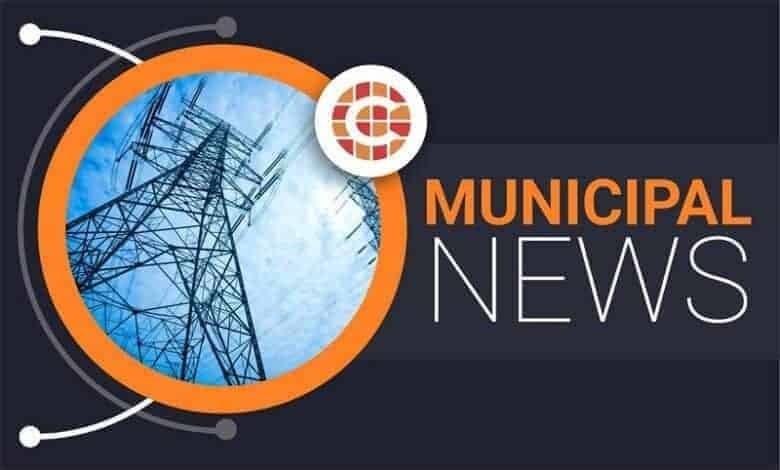Choosing the right career is a crucial decision with far-reaching consequences. It shapes your future, making it essential to make an informed choice.
Over the next few weeks, The African Reporter will engage with businesspeople, professionals, and other key figures, focusing on a different career each week.
Our goal is to provide valuable guidance to younger readers navigating their careers. This week, we explore the career of an information technology (IT) specialist.
Qhamaninande Rebe, an IT specialist, initially pursued sound engineering but developed a curiosity for IT. His advice to aspiring IT professionals is to work hard, stay informed, practice regularly and remain focused.
“I highly recommend this field because most disciplines involve IT. Even people in other careers should equip themselves with basic IT skills or awareness, especially with issues like cyberattacks and stolen money.
“In my work, I enjoy learning every day, understanding challenges, and solving problems. The field also offers many opportunities,” he added.
What is IT?
It refers to using computers, networks, storage and other physical devices to create, process, store, secure and exchange electronic data.
What kind of work does an IT specialist do?
IT specialists manage systems based on their discipline. I work in networking, which involves connecting two or more devices to work together and meet the user’s needs.
It’s similar to a call centre, where inbound and outgoing calls happen. I’m responsible for making that work. Another example is WhatsApp: the software developers build apps like this, allowing you to see who’s online or offline.
It’s a user-friendly tool you can easily navigate and interact with as you like. Software developers are the people who build apps like WhatsApp.
There are many IT disciplines, and what makes it complex is that we work together. Combined, these disciplines form what we call IT. It’s like building an estate, with architects, plumbers and security guards, all different specialities that together create the whole.
What subjects did you need in school to qualify for a career in IT?
I recommend science because it develops problem-solving skills through subjects like math and physics. IT focuses on solving challenges faced by companies and society. Math and science teach critical thinking, a skill you’ll use constantly in an IT career.
Which universities or colleges offer IT-related qualifications?
• Tshwane University of Technology (TUT);
• University of Johannesburg;
• University of Pretoria;
• University of the Witwatersrand.
What undergraduate IT courses can one study?
Depending on the institution, different disciplines are available. The TUT offers many specialisation fields. But first, you start with the foundation phase, then progress to the mainstream, and finally choose your specialisation.
Starting from the basics is essential to understand what IT is, how it works, and why there are different disciplines. Our curriculum is well-structured – at first, you get a 10% introduction to each specialisation. Once you find the one you love, you focus on it. That’s how I studied.
They offer:
• Software development: Building applications like Facebook, WhatsApp and TikTok;
• Networking: Responsible for building and maintaining internet performance. Without networks, there is no internet – which means no IT;
• Internet information services (IIS): A web server created by Microsoft, used to host and manage websites and web applications on Windows servers;
• Multimedia: Refers to the use of multiple forms of content – text, audio, images, video and animation – to convey information or provide an interactive experience;
• Other heavy disciplines
What skills are vital to succeed in the IT industry?
The ability to reason or the capacity to reason is one of them. But here are more:
• Problem-solving skills;
• Communication and teamwork;
• Curiosity and a willingness to learn;
• Adaptability to new technology;
• Basic programming and scripting;
• Understanding how systems and networks work;
• Time management and organisation.
These will carry you through any IT specialisation.
What careers are associated with a qualification in IT?
A qualification in IT opens doors to a range of careers, depending on your interests and specialisation. Here is a breakdown of key careers in IT:
Technical and infrastructure careers
• IT support specialist/help desk technician: Troubleshoots hardware and software issues;
• Network administrator: Manages and maintains computer networks;
• Systems administrator: Handles servers, operating systems and enterprise systems;
• Cloud engineer: Works with platforms like AWS, Azure or Google Cloud;
• Cybersecurity analyst: Protects systems from digital attacks and monitors for threats.
Software and development careers
• Software developer/programmer: Builds apps, software or systems ( Python, Java, C#);
• Web developer: Creates websites and web apps (front-end, back-end or full stack);
• Mobile app developer: Designs apps for Android or iOS;
• DevOps engineer: Bridges development and IT operations for faster deployments.
Data and analysis careers
• Database administrator (DBA): Manages and optimises databases like MySQL, Oracle, or SQL Server;
• Data analyst: Interprets data to help businesses make decisions;
• Data scientist: Uses machine learning and statistics for deeper insights;
• Business intelligence developer: Builds dashboards and reports to support decision-making
There are many more.
At Caxton, we employ humans to generate daily fresh news, not AI intervention. Happy reading!
Stay in the know. Download the Caxton Local News Network App here.



